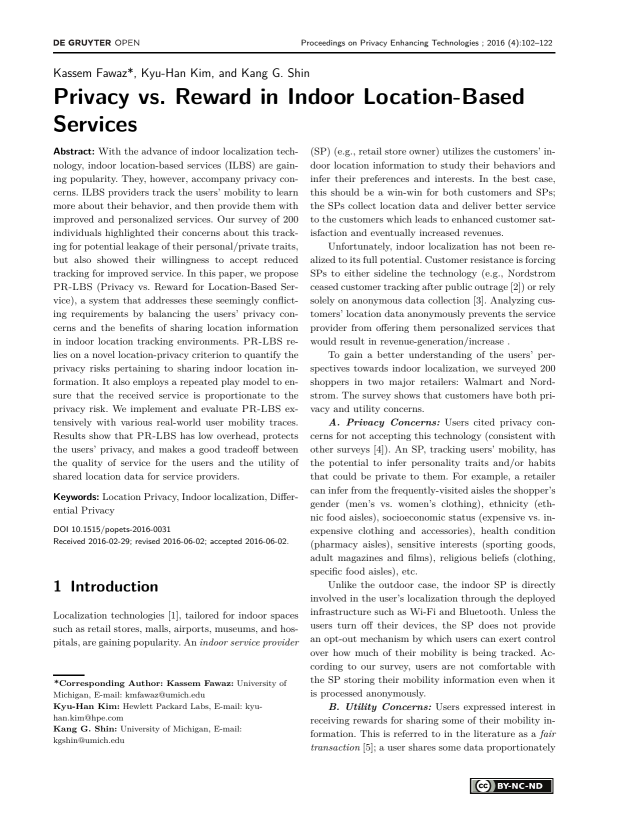Privacy vs. Reward in Indoor Location-Based Services
Authors: Kassem Fawaz (University of Michigan), Kyu-Han Kim (Hewlett Packard Labs), Kang G. Shin (University of Michigan)
Volume: 2016
Issue: 4
Pages: 102–122
DOI: https://doi.org/10.1515/popets-2016-0031
Abstract: With the advance of indoor localization technology, indoor location-based services (ILBS) are gaining popularity. They, however, accompany privacy concerns. ILBS providers track the users’ mobility to learn more about their behavior, and then provide them with improved and personalized services. Our survey of 200 individuals highlighted their concerns about this tracking for potential leakage of their personal/private traits, but also showed their willingness to accept reduced tracking for improved service. In this paper, we propose PR-LBS (Privacy vs. Reward for Location-Based Service), a system that addresses these seemingly conflicting requirements by balancing the users’ privacy concerns and the benefits of sharing location information in indoor location tracking environments. PR-LBS relies on a novel location-privacy criterion to quantify the privacy risks pertaining to sharing indoor location information. It also employs a repeated play model to ensure that the received service is proportionate to the privacy risk. We implement and evaluate PR-LBS extensively with various real-world user mobility traces. Results show that PR-LBS has low overhead, protects the users’ privacy, and makes a good tradeoff between the quality of service for the users and the utility of shared location data for service providers.
Keywords: Location Privacy, Indoor localization, Differential Privacy
Copyright in PoPETs articles are held by their authors. This article is published under a Creative Commons Attribution-NonCommercial-NoDerivs 3.0 license.

